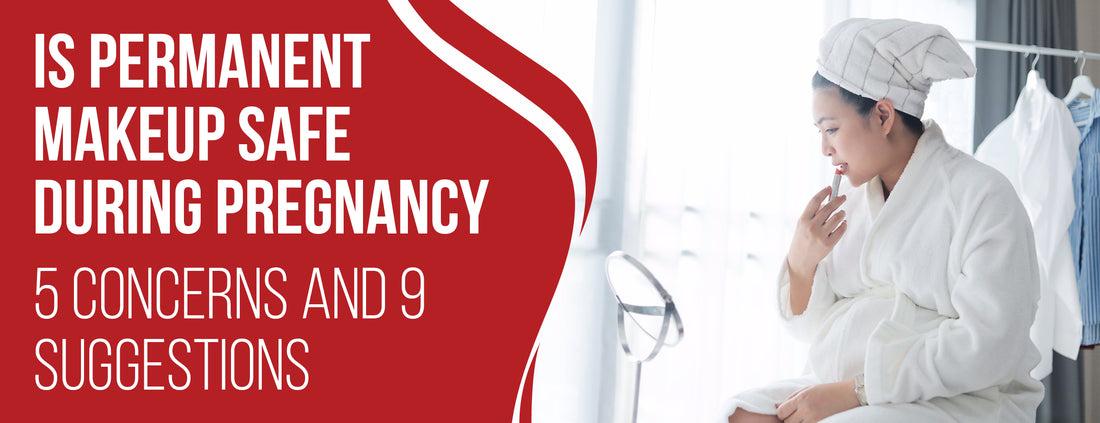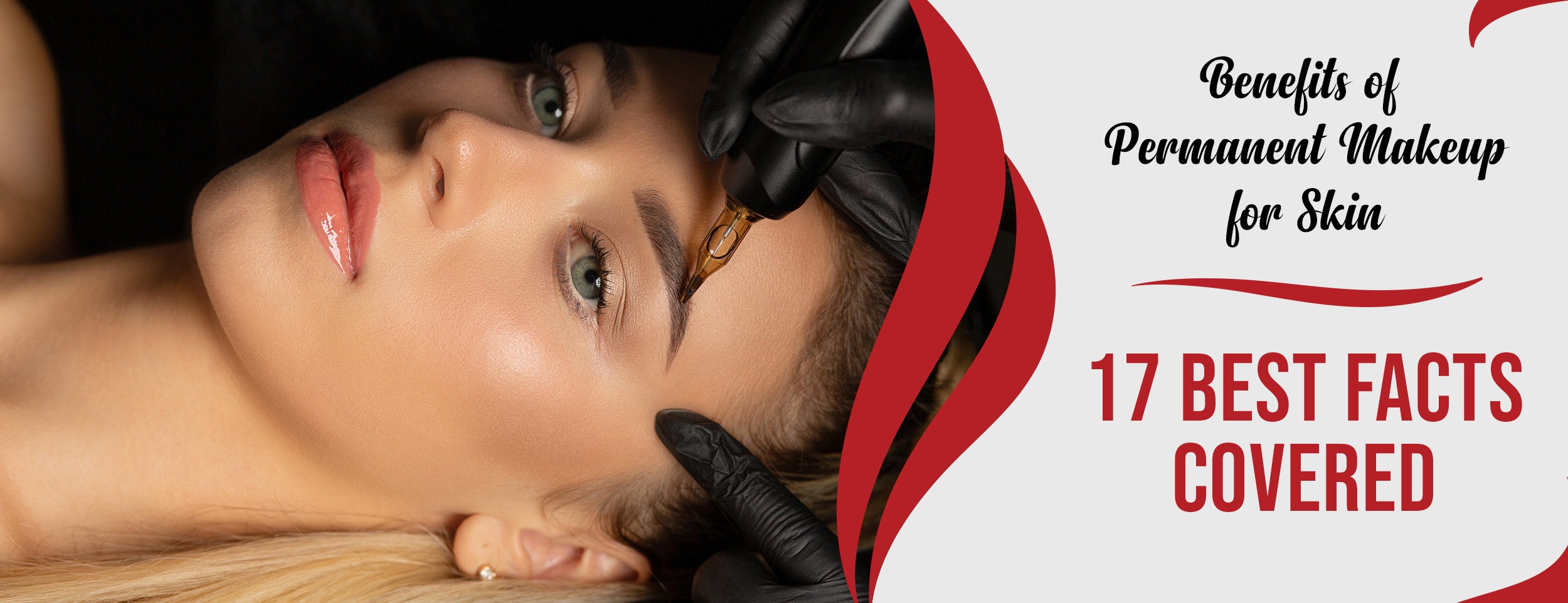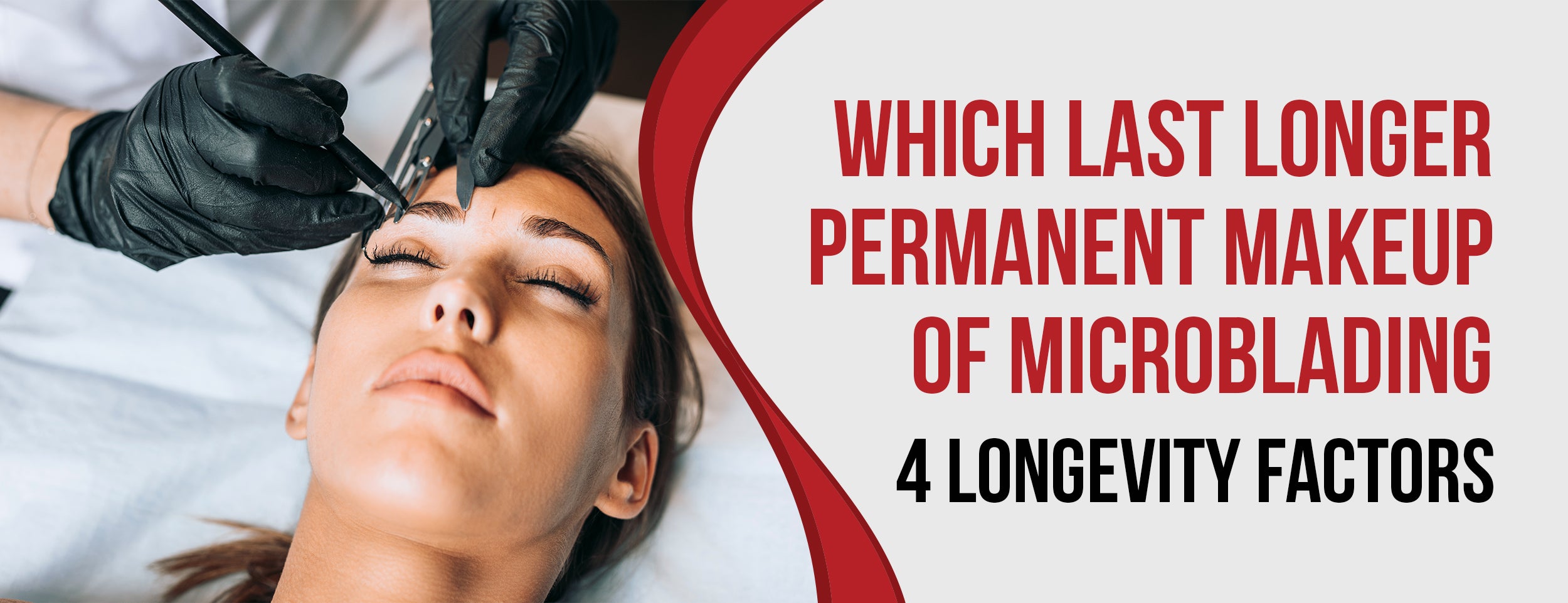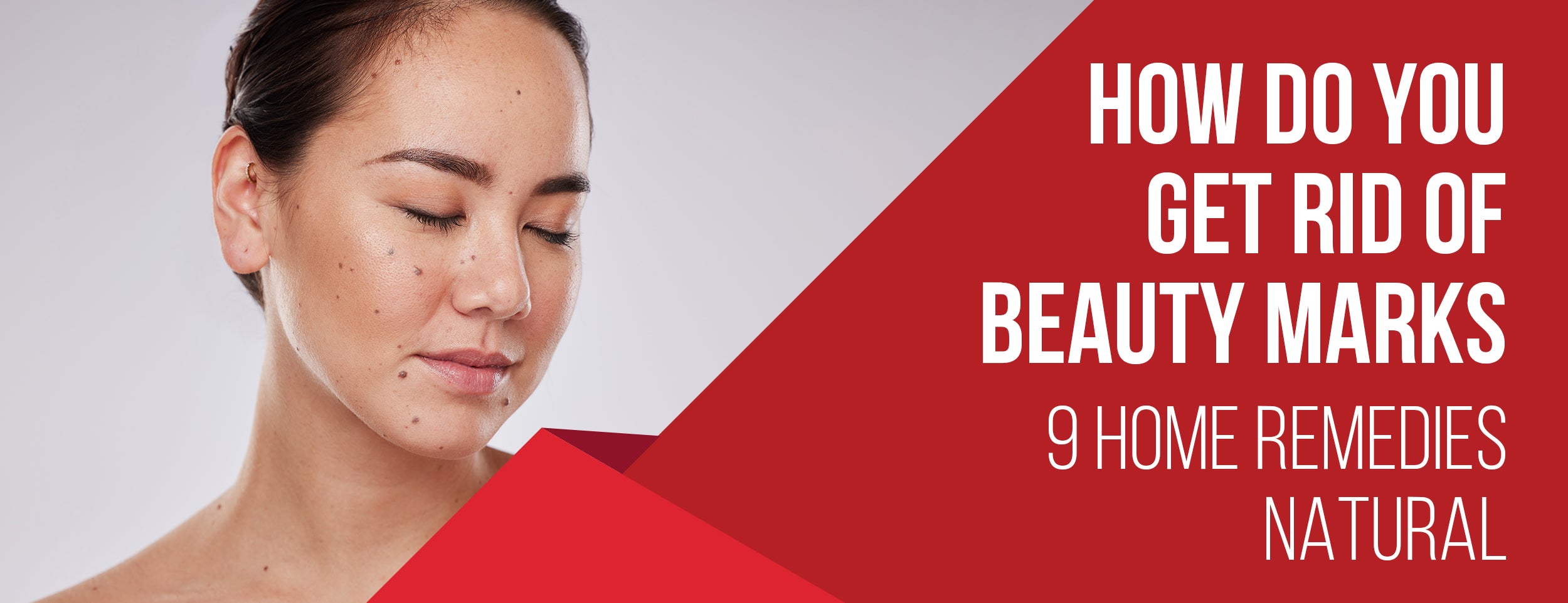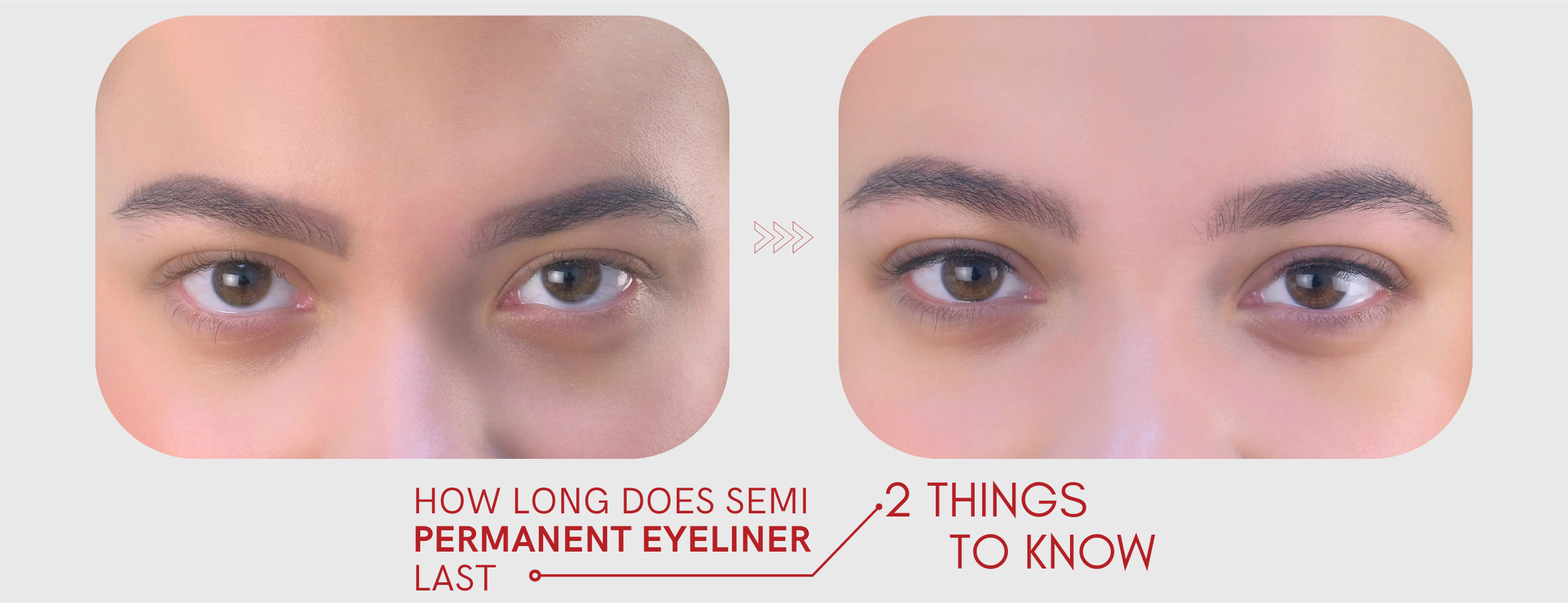If you are pregnant or planning to become pregnant, you may have concerns about the safety of such procedures for you and your baby. It is strongly recommended to wait until after pregnancy and breastfeeding before undergoing permanent makeup or microblading.
During pregnancy, a woman's immune system undergoes significant changes, which are crucial for the success of the pregnancy. These changes are believed to result from the numerous hormonal fluctuations during this time.
In this article, we will explore some of the concerns and precautions surrounding the topic of permanent and semi-permanent makeup during pregnancy.
Is Permanent Makeup Safe During Pregnancy: 5 Reasons

Permanent makeup involves the injection of pigments into the upper layer of the skin, creating long-lasting effects like eyeliner, eyebrow shaping, or lip color. While similar to regular tattoos, this procedure utilizes different needles and pigments.
During pregnancy, it is crucial to consider the safety and advisability of permanent makeup. Several concerns arise:
- Infection: Any procedure that breaks the skin carries the risk of infection. This poses a potential danger to you and your baby, particularly if the infection is caused by bacteria, viruses, or fungi that can affect your immune system or cross the placenta. Signs of infection include redness, swelling, pain, pus, fever, or chills.
- Allergic reaction: You may experience an allergic reaction to the pigments or anesthetics used during the procedure. This can manifest as itching, rash, swelling, hives, or difficulty breathing. Allergic reactions can lead to premature labor or affect your baby's development.
- Toxicity: The pigments used in permanent makeup are not regulated by the FDA and may contain harmful substances like heavy metals, azo dyes, or aromatic amines. These substances can enter your bloodstream and reach your baby through the placenta, potentially causing birth defects, developmental problems, or other health issues.
- Scarring: Permanent makeup can result in scarring or keloids on your skin, impacting your appearance and self-esteem. Scarring may interfere with future procedures such as ultrasounds or epidurals.
- Shifting: Hormonal fluctuations, weight gain, and skin stretching during pregnancy can alter the shape and position of your permanent makeup. For instance, your eyebrows may appear uneven or distorted, or your eyeliner may smudge or fade.

Professional Recommendations and Guidelines
Professional permanent makeup artists and dermatologists strongly advise against undergoing permanent makeup procedures during pregnancy. It is recommended to wait until after giving birth and finishing breastfeeding before considering any cosmetic enhancements. This precaution is necessary for several reasons:
- Hormonal fluctuations during pregnancy may impact permanent makeup's healing process and color retention.
- Pregnancy can make the skin more sensitive and prone to irritation or infection, increasing the risks associated with the procedure.
- Postpartum changes in preferences and appearance may lead to regrets about permanent makeup choices that no longer suit one's desired look.
- By postponing the procedure, unnecessary risks can be avoided for both the mother and the baby.
If, despite these warnings, you still choose to proceed with permanent makeup during pregnancy, you must adhere to the following guidelines:
- Select a reputable, licensed, permanent makeup artist who follows strict hygiene and safety protocols.
- Request a patch test beforehand to check for allergic pigment or anesthetic reactions.
- Inform your doctor and permanent makeup artist about any existing medical conditions or medications you are taking.
- Avoid getting permanent makeup on areas prone to stretching or scarring, such as the abdomen, breasts, or hips.
- Carefully follow the aftercare instructions and promptly report any signs of infection or complications to your doctor.
Alternatives to Permanent Makeup During Pregnancy

If you're expecting and want to enhance your appearance without opting for permanent makeup, there are alternatives you can explore. Consider the following options:
- Choose natural or organic cosmetics that are safe for pregnant women. Look for products free from harmful chemicals like parabens, phthalates, sulfates, and fragrances. Third-party organizations like EWG's Skin Deep database can help you find tested and trusted products.
- Try temporary tattoos or stickers that can mimic the effect of permanent makeup. These are readily available online or in beauty stores, offering a range of colors and designs that are easy to apply and remove.
- Have fun experimenting with different styles and techniques for applying regular makeup. Get creative with brushes, pencils, gels, powders, or liquids to achieve various looks for your eyes, brows, lips, or cheeks. You can find tutorials online or seek advice from professional makeup artists for useful tips.

The Importance of Patch Tests and Allergies
Whether choosing permanent makeup or temporary alternatives during pregnancy, it's important to do a patch test before using any product on your skin. A patch test helps check for allergic reactions to substances. Here's how to do it:
- Apply a small amount of the product on a discreet area like behind your ear or inner arm.
- Wait 24 to 48 hours and check for redness, itching, swelling, or rash in the area.
- If there's no reaction, you can safely use the product. If there is a reaction, avoid the product and consult your doctor.
Common allergens in pregnancy include fragrances, preservatives, and dyes:
- Fragrances: Added to give cosmetic products a pleasant smell but can trigger allergies. Look for fragrance-free or naturally fragranced products with essential oils.
- Preservatives: Used to prevent bacterial or fungal growth in cosmetics but can cause allergies or hormonal disruptions. Look for preservative-free products or natural preservatives like vitamin E or grapefruit seed extract.
- Dyes: Provide color to cosmetic products, but certain dyes can cause allergies or toxicity. Opt for dye-free products or those with natural dyes from plants or minerals.
Safety Considerations During Pregnancy

In beauty, permanent makeup has gained popularity as a cosmetic procedure. It injects pigments into the skin, resulting in long-lasting makeup effects. It's important to note that engaging in such procedures is not recommended during pregnancy. The potential risks include infection, allergic reactions, toxicity, scarring, and pigment shifting.
Instead, if you desire to enhance your appearance while expecting, consider embracing natural or organic cosmetics, temporary tattoos or stickers, or regular makeup techniques. As with any product you use on your skin, conducting a patch test and avoiding known allergens that may trigger adverse reactions is crucial.
By adhering to these safety precautions, you can safeguard yourself and your baby, basking in the radiant glow of your pregnancy.
Semi-Permanent Makeup: A Safer Alternative
Opting for semi-permanent makeup, such as microblading or dermal fillers, can be preferable during pregnancy. These less invasive options provide a safe and suitable alternative.
Temporary Nature
Semi-permanent makeup offers the advantage of temporary effects, mitigating worries about long-term consequences. This is especially comforting during pregnancy, as your body experiences diverse transformations.
Reduced Pain and Discomfort
Semi-permanent makeup procedures are generally less discomforting compared to traditional permanent makeup methods. This makes them particularly beneficial for pregnant women, who may experience heightened sensitivity to pain.

Precautions to Take
If you're thinking about getting permanent or semi-permanent makeup while pregnant, it's important to keep a few precautions in mind:
- Consult Your Healthcare Provider: Always talk to your obstetrician or healthcare provider before undergoing cosmetic procedures during pregnancy. They can provide personalized advice based on your health and pregnancy status.
- Choose a Certified Technician: Ensure the technician performing the procedure is certified, experienced, and follows strict hygiene and safety standards.
- Patch Test: It's a good idea to request a patch test before the procedure to check for any allergic reactions to the pigments.
- Consider Waiting Until After the First Trimester: Wait until after your first trimester to minimize potential risks to your developing baby.
- Manage Expectations: Remember that hormonal changes during pregnancy can affect the procedure's outcome, and you might need touch-ups after giving birth.
Conclusion:
In conclusion, while permanent makeup may seem convenient, it is not recommended during pregnancy due to its potential risks. However, alternative options such as semi-permanent makeup can provide a safer alternative for those looking to enhance their appearance temporarily.
It is important to consult a professional and follow their recommendations for safe procedures. Remember to perform patch tests and allergy checks before any cosmetic procedure, especially during pregnancy. Your safety and the safety of your unborn child should always come first.

